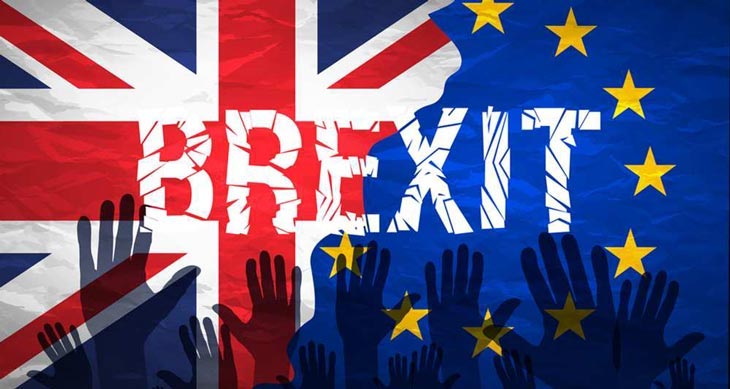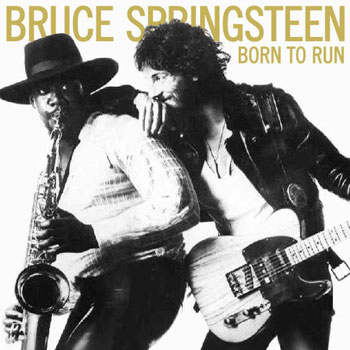It being a couple months since the UK’s shock vote to leave the European Union, in what has been dubbed by the media as “Brexit.”
The result broke during one of the country’s most famous musical gatherings, Glastonbury, creating uproar across the festival, and it wasn’t long before musicians weighed in on the situation. Most have expressed fear, sorrow, and fury over the decision to exit the E.U., and many feel it was the result of a deceitful campaign by Leave, and Remain’s inability to get the consequences across to voters.
Electronic duo Disclosure, who performed on the Friday night, was one of the first to express their disdain, with a series of tweets saying: “What The FUCK!!! Still not sinking in” and “I’m moving to Mars with Bowie.” It wasn’t long before others chimed in. Fat Boy Slim shared the hashtag “#MusicSoundsBetterWithEU” and DJ Annie Mac announced that she intended to get an Irish passport for her son, so he could stay a European citizen.
With musicians tending to lean to the left politically, their reaction was really no surprise. CHVRCHES Lauren Mayberry expressed concern over how the extra red tape would affect touring, saying: “I think the nature of touring is going to change massively. The summer we're looking at right now is just hopping from country to country within Europe and in order to do that when we're not part of the European Union, we would presumably need to go to a different embassy for every different country and apply for a visa for us and everybody in our crew."
However, the shocked reactions weren’t limited to those at the festival. Musicians everywhere had their say. Blur’s Damon Albarn called Brexit “a failure for democracy,” while former Smiths’ guitarist Johnny Marr tweeted: “No one ever said that the majority know what they're doing. All the more reason for the rest of us to stick together.”
But it’s not just artists who may suffer, new issues could also arise for venues. It’s thanks to E.U. funding projects like Liveurope that smaller venues can host emerging artists on their playbills, meaning they can stay in business while still keeping line-ups diverse. While programs like Creative Lenses, which assists venues in forming new business models, are also funded by the E.U.
Although it is hard to predict if digital music will be affected by Brexit, it is much easier to measure the impact on a tangible product such as vinyl. As with most British music, vinyl is manufactured in Europe, so there is a strong possibility of prices rising and sales dropping, especially if companies also need to pay extra taxes on imports.
This summer we're just hopping from country to country within Europe and in order to do that when we're not part of the European Union, we would presumably need to go to a different embassy for every different country and apply for a visa for us and everybody in our crew.
There are also rumours that copyright might be affected, but no one is quite sure how yet. The E.U. is currently reviewing the rules on how companies such as YouTube pay artists who stream on their platforms. If the U.K. leaves they will be exempt from talks on the area, and as the country doesn’t hold intellectual rights in as high regard as other European countries, musicians could find themselves getting the short end of the stick when it comes to royalties.
Still, not everyone in the biz is unhappy with the result. Former Beatle Ringo Starr was pleased, stating that although he was in favor of the EU to begin with, it had failed to turn into the “love fest” he hoped it would.
“I was a huge fan when (the EU) started. I've lived all over Europe so I thought 'how great.’ But it never really got together, I didn't think.”
And although she was originally a Remain supporter, Lily Allen was quick to change her tune. In less than 48 hours the singer did a complete U-turn on the subject, saying that she was now “quite excited about #Brexit.” This caused an uproar amongst much of her fan base, who had backed her pro-remain stance. One Twitter follower even suggested that the 31-year-old should just “stick to music” and stay out of politics.
Britain’s music industry is one of the most influential in Europe, but the result could set the business back years if bands can no longer freely move around the continent, not to mention the fact there’ll be less venues to play in back at home. But there are other ways that artists could find themselves affected, whether it be from new copyright laws or fewer sales due to rising manufacturing prices. With two years for the country to negotiate its future once the leaving process has begun, it could be a long time before musicians and industry-insiders will know how all this will play out. All we can do is wait.
For more information on Brexit check out this article from the BBC.













